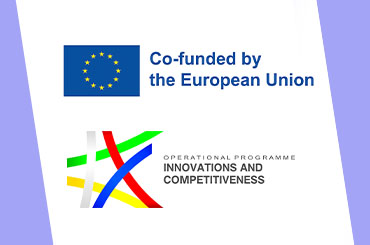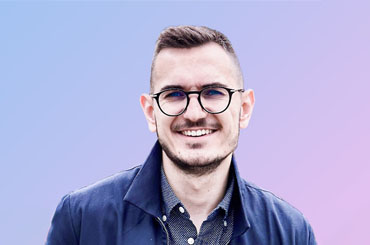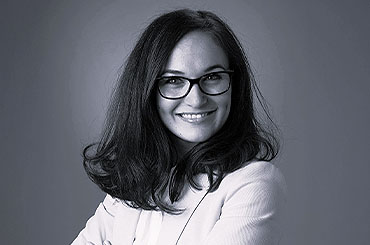



Telerik Academy has received EU funding to develop an AI-powered coding tutor as part of a project aimed at boosting innovation and competitiveness. The initiative, supported by the European Regional Development Fund, will focus on creating a functional prototype, validating the concept, and testing it in real educational environments.
Read the story
An inside look at how to start a career in UX/UI design, what skills matter most, and how the field is evolving with AI. Read more in the interview with Pavel Gospodinov - lead trainer in the Upskill UX/UI program of Telerik Academy.
Read the story
What it really takes to be a modern HR Business Partner—read the answers of Maria Gushterova, guest lecturer in Telerik Academy’s Strategic HR Upskill program. With over 14 years of experience, Maria shares how HR can drive business impact, influence executive decisions, and truly earn a seat at the table.
Read the storyAs a university student majoring in Information Technologies, Martin Katsarov decided to augment his theoretical knowledge with real-world practical skills. The end goal – turning into a full-fledged software engineer and landing his first job quickly with a leading company that truly excites him. Today, he works as a software developer in GVC Services.
After graduating from the Technical University in Sofia with a major in Mechanical Engineering, Iliyan Gogov decided to pursue a different career path – diving into the business world and sales. Realizing his work was no longer a positive and challenging experience and driven by his passion for technology, Iliyan decided to make a change. He applied to Telerik Academy Alpha to become a sought-after software developer.
Alexander Georgiev is a passionate gamer who used to work in the gaming industry, coaching others and commenting on tournaments. At the age of 23 and with no previous programming experience, Alexander joined Telerik Academy Alpha in order to pursue a new career - this time in IT. Just a month after successfully completing the program, he joined Experian as a Junior Software Developer.
Valentin graduated from Coventry University with a degree in Sports Therapy, eager to make a positive impact. After starting his practice, he realized, however, this was not his true calling. So, Valentin decided to make a total career change, which brought him to Telerik Academy. He successfully completed the Alpha JavaScript program and shortly after that kickstarted his IT career at Tick42.
Aged 21 and studying at university, Krasimir Etov decided to join Telerik Academy Alpha .NET to attain the coding and soft skills companies demand and land his first job in IT. Less than a month after graduating from the program, he jumpstarted his career as a Junior Software Developer at Fourth – a leading provider of cloud-based forecasting and cost control software for the hospitality industry and a Telerik Academy partner.
Until 5 years ago, Svetla Ivanova’s educational and professional background had been entirely in the finance sector. After deciding to switch careers, she went from a finance expert to a software developer with the help of Telerik Academy. Shortly after graduating from our professional program for master junior talent, Svetla joined Bede Gaming and has been part of their software engineering team ever since.
-(1).png?sfvrsn=5d7697d3_2)
"The advice I would give to a person going for an interview is to be yourself. There are rules for conducting interviews and many guidelines available online, but the more open the candidate is, the more successful the selection will be for both parties." Alexandra Mechkova, CEO of Telerik Academy.

In the first part of the show, Alexandra Mechkova, CEO of Telerik Academy, shared the specifics of the marketing of software companies. They also told about the history of the most successful Bulgarian software company "Telerik", from which the "Telerik Academy" was later created, which offers training in the IT sector for adults.
-(1).png?sfvrsn=5d7697d3_2)
Irina Lilova, our Talent Success Manager: My advice to every young person is to participate as actively as possible in choosing the right environment for them and in shaping the one they are already in. Think about yourself in the future and what you want to be - professionally and personally.

Telerik Academy is the place where you can launch an IT career in just 6 months, regardless of your background, education or age. And the technical trainers have a crucial role in this process. Meet them in the interview with economy.bg.
-(1).png?sfvrsn=e4b0050e_2)
15 companies from our country participated in one of Europe's most significant events for the technology and digitization sector - Web Summit 2022, in Lisbon, Portugal. At the event, Minister of Innovation and Growth Alexander Pulev met with entrepreneurs, some of whom were from Telerik Academy.